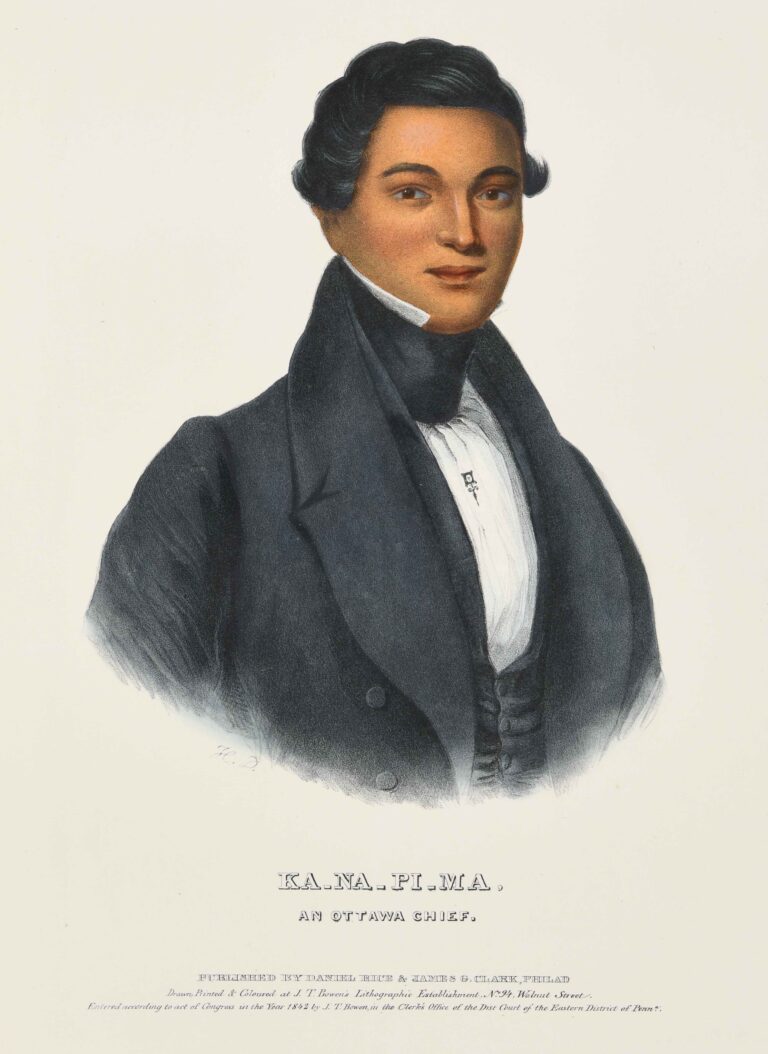A Plan of Education
In the early 1800s, the Odawa faced challenges to their way of life. To meet these challenges, the Odawa chose three youth to be educated in a western school. They could learn how to read, write and speak English. They chose Augustin and his cousins, William Blackbird and Margaret Boyd to attend a seminary school in Cincinnati, Ohio.
While at this school, Augustin and William had the opportunity to go to Rome, Italy to study. If they agreed to go, they would study to be Catholic priests. This was very rare at this time, and no tribal persons had gone to the Vatican for this purpose. However, William and Augustin believed that this education could help their people avoid a new threat: removal.
The Fight Against Removal
During the early 1800s, the American government had a policy of removing tribes from their homelands. Between 1820 and 1850, hundreds of thousands of natives faced removal to Kansas and Oklahoma. It was an extremely difficult time for tribes. Many tribal members died from exposure, starvation and sickness during their forced removals west. So, the Odawa fought against removal, and Augustin played an important part in the Odawa staying home.
When Augustin returned from Rome, the Ogeemak (leaders) of the Odawa asked him to help. First, they knew Augustin was extremely intelligent. At the age of 23, he spoke Anishnaabamowin (his native language), French, English and Latin. Also, Augustin could write in English and Latin. Therefore, he was chosen to be an interpreter for six different tribes at one of the most important historical events for the Odawa. The signing of the 1836 Treaty of Washington D.C.
The 1836 Treaty of Washington D.C.
The Odawa made an agreement with the United States in order to avoid removal. When two nations make an agreement, it’s called a treaty. On a cold November morning, Augustin and the most important leaders of Waganakising got into their canoes at Harbor Springs, Michigan, and paddled all the way to Washington D.C. Traveling on the Great Lakes in November was very dangerous, but they had to do it. They had to make a treaty to stay home.
These treaty negotiations, or talks, became very tense. The United States wanted all the land the Odawa had and wanted to send them out west. The Odawa demanded to stay in their homelands. In order to feed themselves, they also wanted to keep the right to fish and hunt. Augustin was an important person in these talks. He had to translate everything and negotiate for Odawa rights. Eventually, all six tribes signed the 1836 treaty.
Even after that treaty, the Odawa were not safe. The United States tried to remove the tribe to Kansas many times. Augustin understood the treaty and knew the law. He wrote letters and petitions to avoid removal . It wasn’t until another treaty in 1855 that the Odawa would avoid removal completely.
Augustin Hamlin died shortly after the 1855 treaty. His place in Odawa and Michigan history is very important. The Odawa faced removal to Kansas if not for people like Augustin Hamlin. The Odawa understood the value of education and communication skills to overcome challenges.




